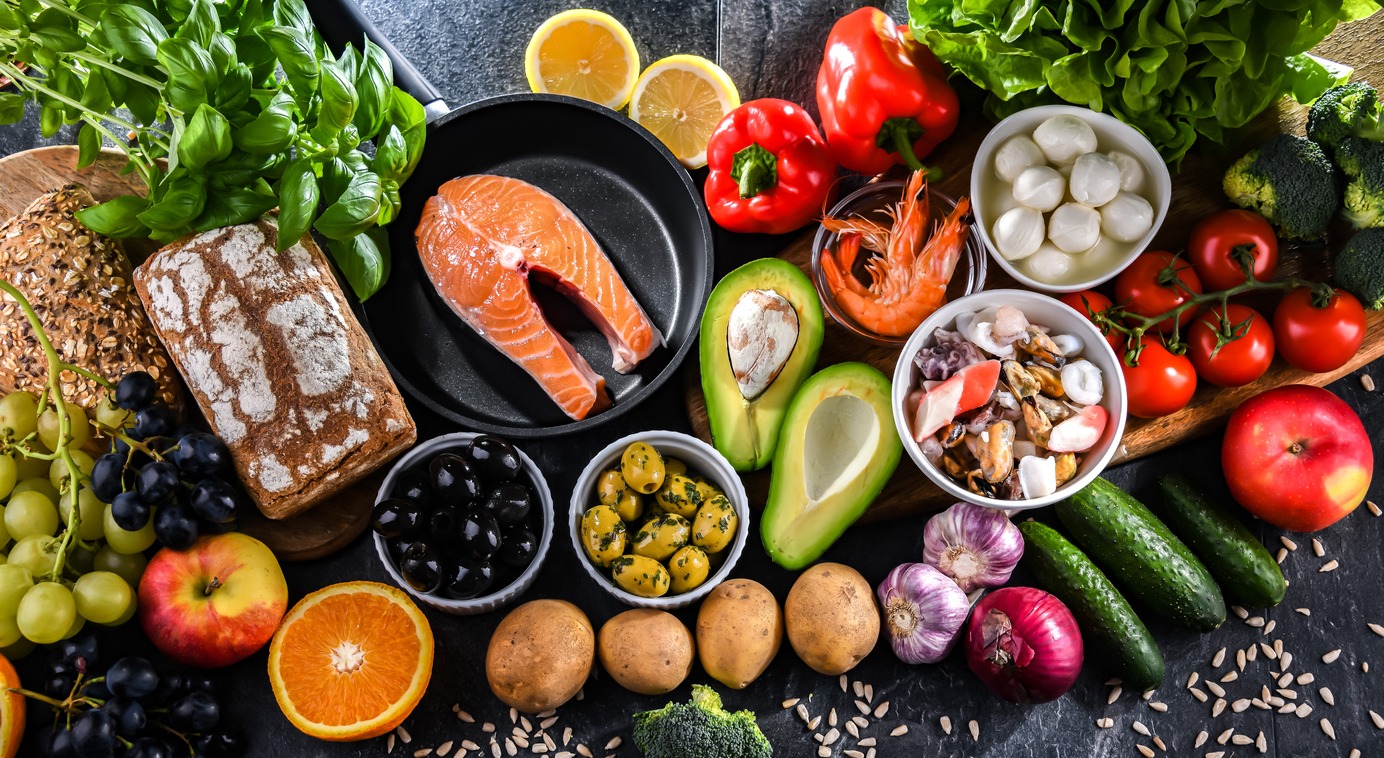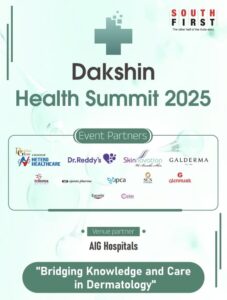Published Nov 12, 2025 | 12:07 PM ⚊ Updated Nov 13, 2025 | 10:39 AM

Anti-inflammatory diet. (iStock)
Synopsis: At the second edition of Dakshin Health Summit, medical experts outlined a clear roadmap for longevity through diet, emphasising that how you eat shapes not just how you feel, but how long you live and thrive. They stressed that anti-inflammatory diets are central to combating age-related disease.
In an age of highly processed foods and packaged meals affecting the health of younger generations, medical experts at the second edition of South First‘s Dakshin Health Summit have outlined a clear roadmap for longevity through diet, emphasising that how you eat shapes not just how you feel, but how long you live and thrive.
At the panel discussion on “Skin Health & Ageing” held at the Asian Institute of Gastroenterology (AIG), Gachibowli, on Sunday, 9 November, leading dermatologists, endocrinologists, and nutritionists converged on a unified message: Anti-inflammatory diets are central to combating age-related disease.

The second edition of the Dakshin Health Summit 2025 was held at the Asian Institute of Gastroenterology in Hyderabad on Sunday, 9 November.
“They always say your mood mirrors your meal, or your meal mirrors your mood. Mood can be greatly affected by what you eat. A lot of the younger generation today consumes highly processed meals and packaged foods, and it’s affecting their health, their skin, and even their sleep,” said Dr Malavika Kohli, Senior Dermatologist and Director of Skin Secrets, Mumbai, who moderated the discussion.
Dr Kohli introduced what she calls the “80% rule” for sustainable dietary change. “For years, I’ve always told my patients to follow these dietary principles at least 80% of the time, almost every day of the week. You’ll find that you recover faster — whether you’ve travelled, fallen sick, or simply had a hectic period. Your daily output, your energy levels, everything is better.”
The anti-inflammatory diet she described is “mainly plant-based, with very little meat; and if there is meat, it’s usually fish or white meat. Healthy fats come from olives, avocados, and coconut. Very few fast carbohydrates. Lots of spices.”
She highlighted India’s advantage: “In India, we’re lucky to have so many anti-inflammatory spices — turmeric, black pepper — that we can freely use in our food.”
Dr Maya Vedamurthy, Senior Dermatologist and Director of RSV Skin Clinic, Chennai, revealed that her clinic has adopted an anti-inflammatory dietary pyramid for patients.
“There’s actually an anti-inflammatory diet represented as a pyramid. It’s mostly a Mediterranean diet, and we give it in the clinic to all our patients with psoriasis, hidradenitis, and acne vulgaris. It was originally developed by cardiologists to prevent atherosclerosis, and atherosclerosis is a part of ageing.”
She noted the diet’s compatibility with Indian eating habits: “We adopted it and started giving it to our patients, and they love it because most of it overlaps with Indian dietary habits.”
Dr Vedamurthy also referenced the historically popular Perricone diet for wrinkles.
“If you read the diet, it’s very interesting and very healthy. So diet definitely plays a role; it’s all about inflammation and ageing-related inflammation. And what I’ve noticed is that the Mediterranean diet shows up across most of these frameworks as the one that really supports anti-ageing.”
Mrinal Pandit, Head Nutritionist at Oliva Skin Hair and Body, Hyderabad, explained the science behind food choices. “When you look at the list of foods we’re discussing, they’re all rich in antioxidants and omega-3 fatty acids. Oxidants created by stress or pollution are what these antioxidants aim to neutralise.”
However, she cautioned against overemphasis on single nutrients.
“So yes, berries and similar foods are excellent sources of antioxidants — but the quantity matters. We can’t focus only on antioxidants; we have to consider calories, proteins, and how much we’re actually burning. These days, most of us are not moving enough. Around 1,200 to 1,400 calories a day is more than sufficient because we’re not burning much.”
On fish consumption, she specified: “Fish is beneficial as well; around 200 grams of fatty fish per week serves the purpose.”
Pandit revealed a crucial detail about India’s favourite anti-inflammatory spice. “So when you talk about turmeric, what we’re really talking about is curcumin. During Covid, everyone was drinking golden milk lattes left, right, and centre — but not everyone realised that if you don’t add pepper, it doesn’t get absorbed. You also need a fat medium to absorb both curcumin and piperine. So that one kilo of turmeric all of us drank through Covid basically went to waste.”
On cinnamon, another popular spice, Pandit noted its benefits with a caveat: “Cinnamon improves insulin sensitivity. So if you have insulin resistance, it helps. Taking it early in the morning is beneficial, but sometimes it can cause acid regurgitation. So people with acid reflux should avoid it.”
Dr Vedamurthy described the comprehensive dietary guidance provided in clinical practice. “In our clinic, we do have diet plans we suggest. One is the Mediterranean diet. And then we explain what intermittent fasting actually is—how long one should do it. Is 20 hours necessary? Is 16 enough? Are 13–14 hours more sustainable? These are the issues we discuss.”
“We also guide them towards higher protein intake and a cleaner diet. That’s what holistic care is—addressing the patient’s entire issue with a complete solution,” she said.
The panel converged on a simple visual rule for ensuring adequate nutrition. Dr Kalpana Sarangi, Consulting Dermatologist and Head of Department at Nanavati Hospital, Mumbai, stated: “So I typically tell my patients to eat food or salad that has five different colours. That covers most antioxidants.”
Dr Vedamurthy added: “And then I tell them rainbow colours, because that even includes your brinjal. Our patients recognise rainbow colours — so all the rainbow colours should be there.”
Dr Kohli contributed another recommendation: “And for my non-veg patients, I tell them to have bone broth. Bone broth is a great source of ferritin and collagen — proven.”
(Edited by Muhammed Fazil.)

